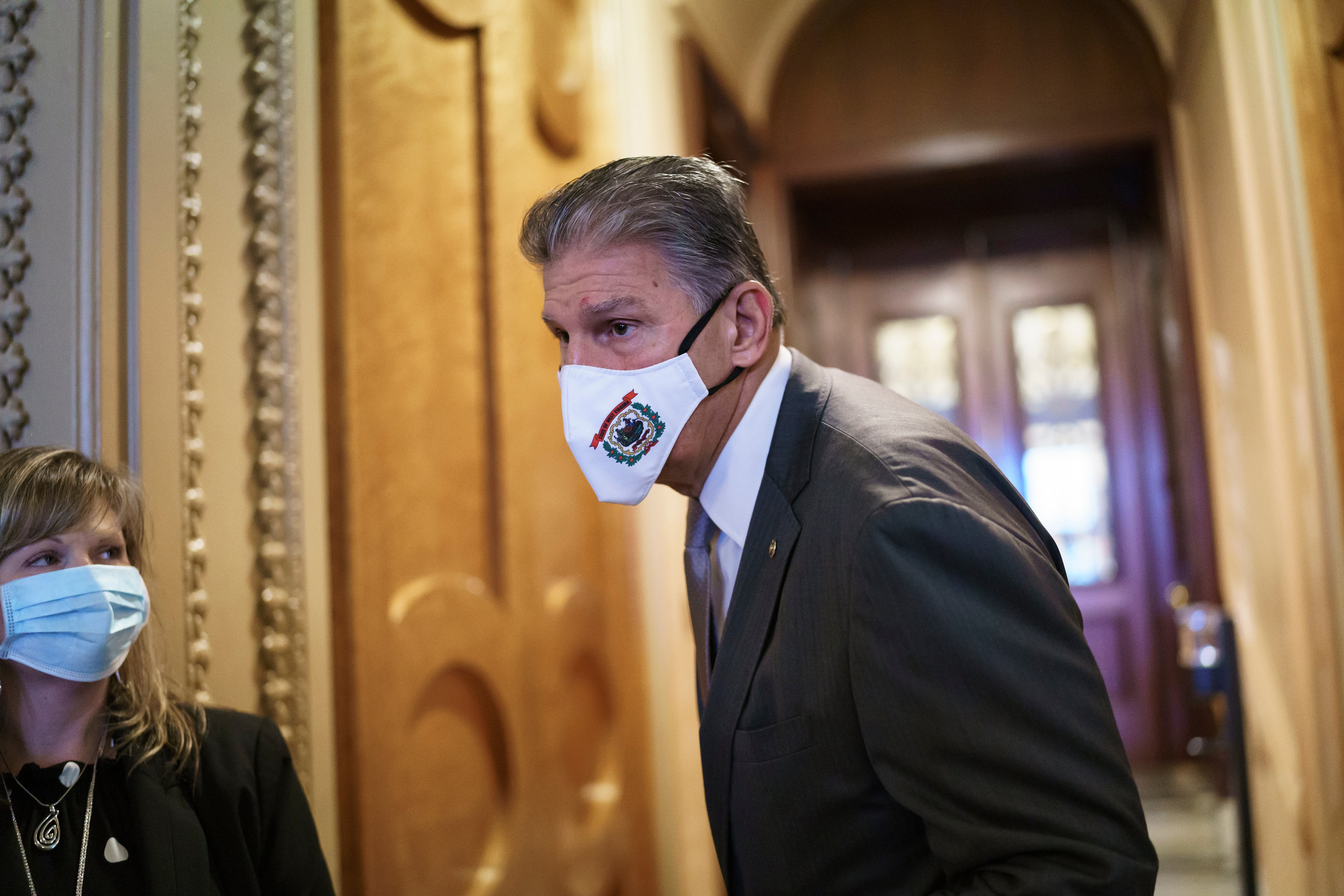Joe Manchin doesn’t understand what the Democrats stand for anymore
The Senator from West Virginia has misread the Democratic electorate — and the broader American public — in a fundamental way

Senator Joe Manchin is running out of options.
On Tuesday, House Speaker Nancy Pelosi dismissed the centrist West Virginian’s plea to “pause” consideration of Democrats’ sweeping $3.5 trillion budget reconciliation bill. Pelosi’s curt rejection comes after Manchin took to the Wall Street Journal to criticize his colleagues — including President Joe Biden — for supporting a package he argues would supercharge inflation while saddling future generations with a boatload of national debt.
“Obviously, I disagree,” Pelosi told CNN when asked about Manchin’s increasingly out-of-touch demands. She isn’t alone: later the same day, Biden expressed confidence that while Manchin may be full of bluster on television, he still expects to see him voting with Democrats when it counts. Senate Majority Leader Chuck Schumer was more direct with his obstinate colleague: “We are moving forward on this bill,” he reiterated to reporters this week.
Manchin frames his criticisms of Democratic spending priorities as “centrism,” but the end result is closer to the obstructionism of the McConnell era than anything resembling the will of the American people. Now Manchin faces more pressure than ever from a united coalition of Democratic leaders and progressives like Rep. Alexandria Ocasio-Cortez of New York. Washington’s political window is quickly moving left. If he isn’t careful, Manchin may soon find himself falling out of it.
Manchin’s lust for federal inaction misreads the Democratic electorate — and the broader American public — in a few fundamental ways. The first, and most important, is that a majority of Americans across both parties support significant investment in our nation’s creaking, collapsing civil infrastructure.
According to an AP/NORC poll released at the end of July, nearly six in ten Americans said Washington should be treating infrastructure as a major priority. In that same survey, a staggering 79 percent of Republicans told pollsters they support Biden’s ambitious spending on road and bridge repairs. In fact, spending on major infrastructure improvements is the one policy area where supermajorities of both Democrats and Republicans want Washington to take decisive, immediate leadership.
That broad national support is why Biden, who has been cautious about embracing the progressive wing of his party, has made common cause with critics like Sen. Bernie Sanders and Rep. Cori Bush. Infrastructure is a winning issue for a Biden presidency desperately in need of a big, broad victory. It’s Manchin — not the vilified left — who stands in the way of Democrats notching a landmark bipartisan win.
There’s another problem: Manchin doesn’t just want less spending, he wants to gut the core of what makes Biden’s twin infrastructure spending bills work. Manchin has so far committed to supporting only about $1 trillion of the package’s $3.5 trillion in expenditures, meaning most of the roads, bridges and green tech infrastructure Americans want wouldn’t make the cut under a Manchin-approved bill.
That won’t play well with his West Virginia constituents, many of whom are members of unions who would benefit from Biden’s infrastructure programs. Those unions have been pushing Manchin to return to the political mainstream since April. Now that their Senator has abandoned them, those same unions are prepared to stop asking nicely and start threatening his electoral viability.
For all his talk of returning to the political center, Manchin seems to have misjudged just how quickly American centrism has shifted under his feet. That puts him in the bizarre position of lecturing his Senate colleagues on the importance of getting to work for the American people while at the same time remaining one of the main obstacles to getting even bipartisan bills approved.
Without Manchin’s compulsive brake-pumping, Democrats likely would have already passed two major infrastructure bills and been well on the way to addressing voting rights. Instead, Manchin has invested his time drafting scolding op-eds in Republican newspapers and refusing to support key Democratic campaign promises.
Manchin’s refusal to engage with Democratic leaders has opened up an unexpected opportunity for the 96 members of the House Progressive Caucus. After months fighting back against Manchin-driven narratives that progressives can’t deliver legislative victories, it is now moderates who are justifying their inability to drive policy on Capitol Hill. And with Manchin and fellow moderate Sen. Kyrsten Sinema irritating everyone from Biden to Pelosi, progressives are increasingly finding themselves in the driver’s seat on key elements of Biden’s legislative agenda.
Moderates may regret giving progressives that opportunity. With Biden and congressional leaders willing to embrace progressive priorities like green tech investment and “social infrastructure” spending like senior care, childcare, and long-term health services, moderates now find themselves facing serious pushback for the first time in years. Unless Manchin can adapt to the Democratic Party as it exists now, he may soon find himself out of a job.
Join our commenting forum
Join thought-provoking conversations, follow other Independent readers and see their replies
Comments
Bookmark popover
Removed from bookmarks